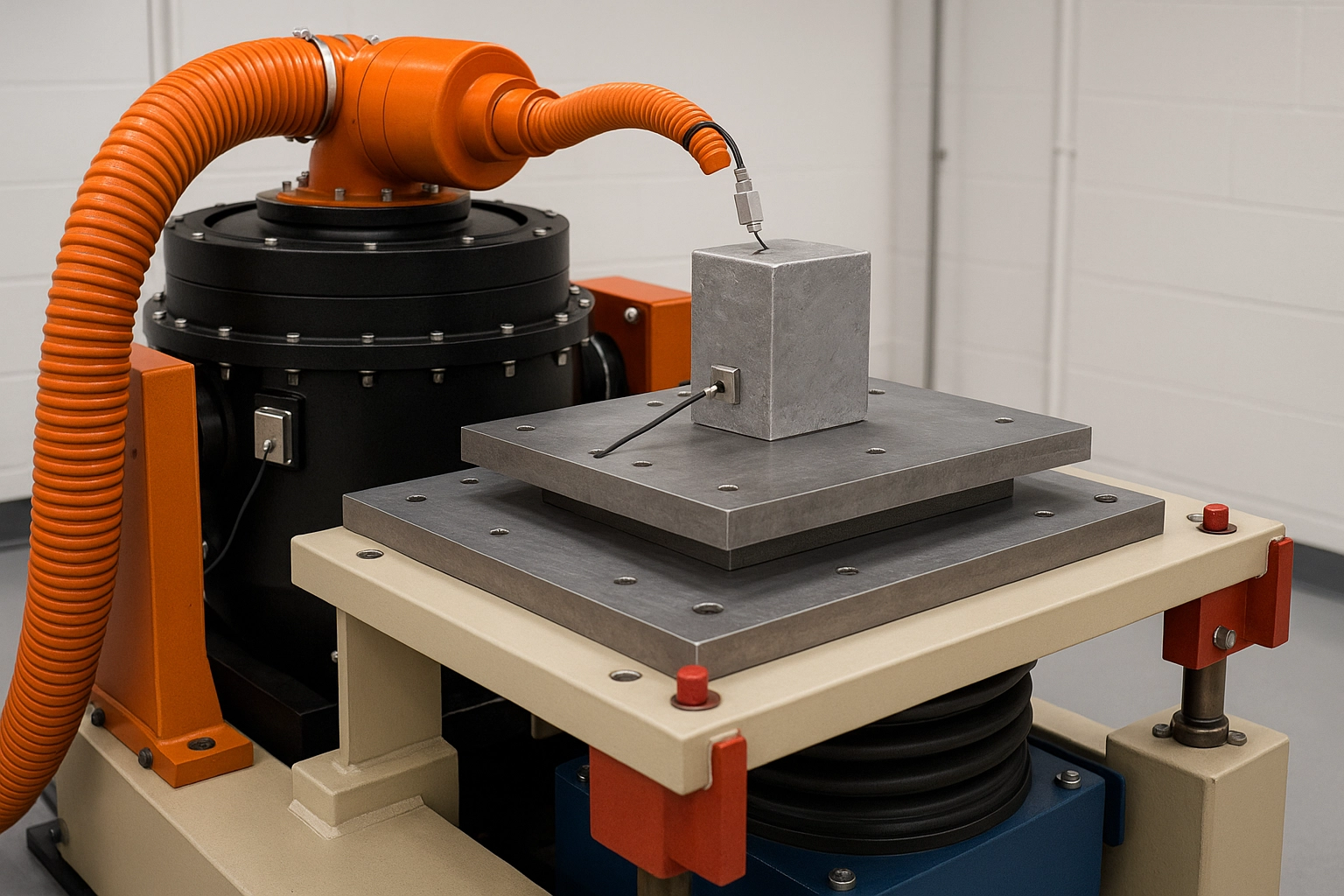JIS C0912 Vibration Resistance Test for Vehicle Batteries
The JIS C0912 vibration resistance test is a critical procedure designed to evaluate the durability and reliability of vehicle batteries under controlled mechanical shock environments. This standardized test ensures that automotive batteries can withstand the rigors of transportation, installation, and use without compromising their performance or integrity.
The JIS C0912 standard specifies the method for determining the resistance of a battery to vibration in accordance with the International Organization for Standardization (ISO) guidelines. The primary objective is to assess how well the batteries can endure mechanical shock and vibration that they may encounter during various stages of their lifecycle, including manufacturing, transportation, installation, and operation.
The test setup typically includes a vibration testing machine capable of generating controlled frequencies and amplitudes over time periods relevant to real-world scenarios. The specimen battery is subjected to these vibrations while being monitored for any changes in performance parameters such as internal resistance, voltage drop, and capacity retention.
One of the key aspects of this test is ensuring proper specimen preparation before testing begins. This involves cleaning the battery, securing it onto the vibration fixture, and applying any necessary labels or markers to track performance during the trial. The correct application of these procedures ensures accurate results that reflect real-world conditions accurately.
The JIS C0912 standard defines acceptance criteria based on predefined thresholds for changes in key metrics like internal resistance, voltage fluctuations, and capacity retention after exposure to specified levels and durations of vibration. Compliance with these criteria indicates a successful test result, signifying the battery's ability to maintain its operational capabilities under challenging environmental conditions.
The importance of this testing cannot be overstated, especially given the increasing demand for reliable automotive components that can withstand harsh operating environments. By adhering to JIS C0912 standards during development and quality assurance processes, manufacturers ensure their products meet stringent industry requirements while maintaining high levels of customer satisfaction.
For R&D engineers involved in developing new vehicle batteries or improving existing designs, understanding the nuances of JIS C0912 testing provides valuable insights into potential design flaws early on. Similarly, compliance officers responsible for ensuring regulatory adherence find this standard essential when planning and implementing quality control measures within their organizations.
Real-world applications highlight the significance of such tests in enhancing product reliability across diverse industries. For instance, electric vehicles (EVs) rely heavily on robust batteries capable of performing consistently despite frequent changes in temperature and stress levels experienced during daily usage. Ensuring these components pass rigorous vibration resistance tests helps maintain optimal performance throughout their operational lifespan.
Additionally, suppliers looking to enter the automotive market must demonstrate compliance with relevant international standards like JIS C0912 to secure contracts from major OEMs. This not only reinforces their commitment to quality but also opens doors for further business opportunities within this competitive sector.
Benefits
The implementation of JIS C0912 vibration resistance tests offers numerous advantages, particularly in enhancing the durability and reliability of vehicle batteries. By subjecting these components to controlled mechanical shock environments mimicking real-world scenarios, manufacturers gain valuable insights into potential weaknesses early on.
- Improved Product Quality: Ensures that only high-quality batteries reach market, reducing returns and warranty claims.
- Increased Customer Satisfaction: Reliable products lead to satisfied customers who experience less downtime and more consistent performance from their vehicles.
- Enhanced Reputation: Compliance with international standards like JIS C0912 strengthens a company's reputation, making it attractive for partnerships and collaborations within the industry.
- Faster Development Cycle: Early identification of issues through thorough testing allows manufacturers to address them promptly, accelerating product launch timelines.
These benefits collectively contribute to creating safer, more efficient vehicles that meet stringent performance expectations set by both consumers and regulatory bodies alike.
Industry Applications
- Automotive Manufacturing: Ensures that batteries used in electric or hybrid cars can withstand the stresses of production lines and transportation.
- Transportation Industry: Provides assurance for logistics companies handling sensitive equipment requiring reliable power sources.
- Electrical Engineering: Supports the development of advanced battery technologies aimed at meeting future energy needs sustainably.
- Research Institutions: Facilitates academic research into improving battery performance and lifespan under varying conditions.
The versatility of JIS C0912 testing makes it applicable across multiple sectors beyond just automotive manufacturing, further emphasizing its value in promoting reliable component design.
Quality and Reliability Assurance
In the context of quality assurance (QA), JIS C0912 plays a pivotal role by providing standardized procedures for evaluating battery performance under mechanical shock environments. This standard ensures that all batteries undergo consistent evaluation processes, leading to more reliable outcomes.
R&D teams can leverage these tests early in their development cycles to identify potential areas of improvement before scaling up production efforts. By incorporating JIS C0912 into their QA protocols, companies demonstrate their dedication to producing top-tier products capable of meeting stringent industry expectations.
Moreover, suppliers looking to establish themselves within the automotive supply chain must ensure compliance with international standards like JIS C0912 to gain credibility and trust from prospective buyers. This not only enhances their competitive edge but also fosters long-term relationships built on mutual respect and shared goals.
The focus on continuous improvement through rigorous testing underscores the importance of adhering strictly to established protocols when conducting these types of evaluations. It sets a benchmark for excellence that drives innovation while maintaining high standards across all aspects of operation.





